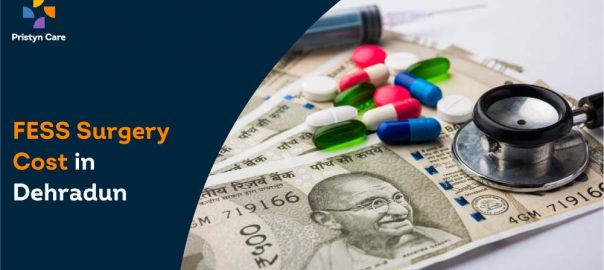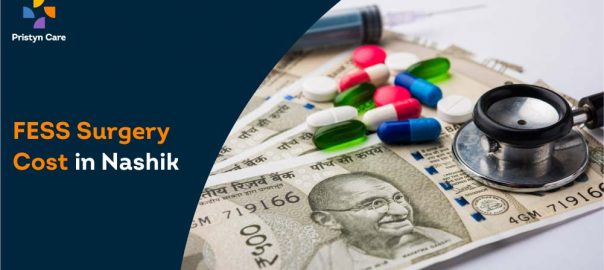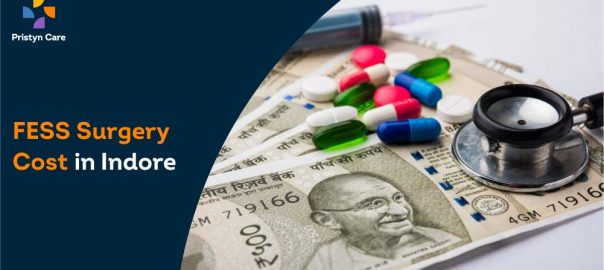![]() Views: 396
Views: 396
What is Nosebleed (Epistaxis)? Can It Have Serious Consequences?
Dedicated Support at Every Step!
Our Doctors are available 24 hours a day, 7 days a week to help you!
Table of Contents
What is Nosebleed (Epistaxis)?
Nosebleed or epistaxis is a condition where there is bleeding from the nose. It is a common problem that can occur in people of all ages. The bleeding can come from one or both nostrils and can range from a few drops to a heavy flow.
Nosebleeds can be caused by a variety of factors, including dry air, allergies, infections, injuries, high blood pressure, blood clotting disorders, and certain medications. In some cases, the cause of nosebleeds may be unknown.
Most nosebleeds are not serious and can be treated at home. Pinching the nostrils together for several minutes can help stop the bleeding. If the bleeding continues for more than 20 minutes, or if it is accompanied by severe pain or difficulty breathing, medical attention should be sought immediately.
Preventive measures include keeping the nasal passages moist with saline sprays or humidifiers, avoiding picking the nose, and using protective headgear during activities that increase the risk of head injuries.
Can Nosebleeds Have Serious Consequences?
Most nosebleeds are not serious and can be easily treated at home with medical assistance. However, in some cases, nosebleeds can have serious consequences depending on the underlying cause.
Here are some potential serious consequences of nosebleeds:
Blood loss: In rare cases, nosebleeds can cause significant blood loss, which can lead to anemia or other complications.
Infection: Frequent or long-lasting nosebleeds can lead to infections in the nasal cavity or sinuses.
High blood pressure: Nosebleeds can sometimes be a sign of high blood pressure or hypertension, which can lead to serious health problems if left untreated.
Nasal tumors: Rarely, nosebleeds can be a symptom of nasal tumors or other cancers in the head and neck region.
Trauma: Nosebleeds can occur as a result of facial trauma, such as a blow to the nose. In severe cases, this can lead to fractures or other injuries.
If you are experiencing frequent or severe nosebleeds, or if you have other symptoms such as dizziness, weakness, or shortness of breath, it is important to seek medical attention. A healthcare professional can help diagnose and treat the underlying cause of your nosebleeds and prevent potentially serious consequences.
No Cost EMI, Hassle-free Insurance Approval
What are the Treatments for Nosebleeds?
The treatment for nosebleeds depends on the underlying cause, severity, and frequency of the nosebleed. Here are some common treatments for nosebleeds:
Pinch the nose: Pinching the nostrils together for 10-15 minutes can help stop most nosebleeds by applying pressure to the blood vessels in the nose.
Ice: Applying ice to the bridge of the nose can help reduce swelling and constrict the blood vessels, which can help stop the bleeding.
Nasal sprays or gels: Using saline nasal sprays or gels can help keep the nasal cavity moist and prevent further irritation or bleeding.
Cauterization: This is a medical procedure that involves using heat or chemicals to seal off the blood vessels in the nose and stop the bleeding.
Surgical repair of a broken nose or correction of a deviated septum if this is the cause of the nosebleed.
Ligation. In this procedure, the culprit blood vessel is tied off to stop the bleeding.
SURGERY FOR EPISTAXIS (NOSEBLEED)
Epistaxis, or nosebleeds, can be a common occurrence and can range in severity from mild to severe. In most cases, nosebleeds can be treated at home or with medical intervention. However, if the bleeding is severe or recurring, surgery may be required.
There are different surgical options for treating severe or recurring epistaxis, depending on the underlying cause of the bleeding. Some of the surgical procedures include:
Cauterization: This involves burning the bleeding blood vessels with an electric current, chemical agents, or heat to stop the bleeding.
Nasal packing: This involves inserting a gauze or foam material into the nostril to apply pressure and stop the bleeding. The packing is usually removed after a few days.
Artery ligation: This involves tying off the blood vessels that are causing the bleeding. This is usually done under general anesthesia.
Embolization: This involves blocking the blood vessels that are causing the bleeding by injecting a substance that blocks blood flow.
Surgery to correct nasal anatomy: In some cases, epistaxis can be caused by structural abnormalities in the nose. Surgery to correct these abnormalities can help prevent future episodes of nosebleeds.
It is important to consult with a medical professional to determine the appropriate treatment option for your specific case of epistaxis.
How Do Nosebleeds Differ?
Nosebleeds, also known as epistaxis, can differ in several ways, including the location and severity of the bleeding. Here are some ways nosebleeds can differ:
Anterior vs. Posterior nosebleeds: Anterior nosebleeds occur in the front part of the nose and are the most common type of nosebleeds. Posterior nosebleeds occur in the back part of the nose and are less common but often more severe.
Underlying causes: Nosebleeds can be caused by a variety of underlying conditions, including dry air, nasal irritation, allergies, high blood pressure, and blood disorders. In some cases, nosebleeds may be a symptom of a more serious underlying condition, such as a tumor or a blood clotting disorder.
It is important to seek medical attention if you experience frequent or severe nosebleeds, or if you have other symptoms such as dizziness, fainting, or difficulty breathing.
Who Gets Nosebleeds?
Anyone can get nosebleeds, but they are more common in certain groups of people. Here are some factors that may increase the likelihood of getting nosebleeds:
Dry air: Dry air can cause the lining of the nose to dry out and make an individual more become more susceptible to nosebleeds. This can happen in cold weather or in areas with low humidity.
Allergies: Allergies can cause inflammation in the nasal passages, which can increase the likelihood of nosebleeds.
Trauma: Any kind of injury to the nose, such as a blow to the face or picking at the nose, can cause a nosebleed.
Medications: Certain medications, such as blood thinners or anti-inflammatory drugs, can increase the risk of nosebleeds.
Medical conditions: Medical conditions that affect the blood vessels, such as high blood pressure or bleeding disorders, can increase the likelihood of nosebleeds.
Tips to Stop Nosebleed
Nosebleeds, also known as epistaxis, are a common occurrence and can be caused by various factors, including dry air, injury, allergies, medication, and high blood pressure. Here are some tips to help stop a nosebleed:
Pinch the nostrils: Pinch the soft part of your nose together with your thumb and index finger and breathe through your mouth. Maintain pressure for at least 5-10 minutes until the bleeding stops.
Lean forward: Tilting your head forward can help prevent blood from flowing down the back of your throat. However, avoid tilting your head back, as this can cause blood to flow into your throat, which may result in gagging, coughing, or vomiting.
Apply ice: Applying a cold compress or ice pack to the bridge of your nose can help constrict blood vessels and reduce bleeding. Make sure to wrap the ice in a towel to avoid direct contact with your skin.
Avoid blowing your nose: Blowing your nose can increase blood flow and prolong the bleeding. Instead, gently clean the area around your nostrils with a damp cloth.
Moisturize your nose: Dry air can cause the nasal lining to become dry and cracked, which can increase the risk of nosebleeds. Using a saline nasal spray or applying a thin layer of petroleum jelly to the inside of your nostrils can help keep the nasal lining moist.
If the bleeding does not stop within 20-30 minutes or if you experience frequent nosebleeds, consult an ENT doctor.
Summing Up
In conclusion, nosebleeds can be a common and often harmless occurrence, but they can also be a sign of a more serious underlying condition. If you experience frequent or prolonged nosebleeds, it's important to consult your healthcare provider to determine the cause and seek appropriate treatment. In the meantime, there are steps you can take to prevent nosebleeds, such as avoiding dry environments, using a humidifier, and avoiding nose-picking. If a nosebleed does occur, it's important to remain calm and follow proper first aid techniques, such as tilting your head forward and applying pressure to the nose. With proper care and attention, most nosebleeds can be easily prevented and managed. managed and prevented.








